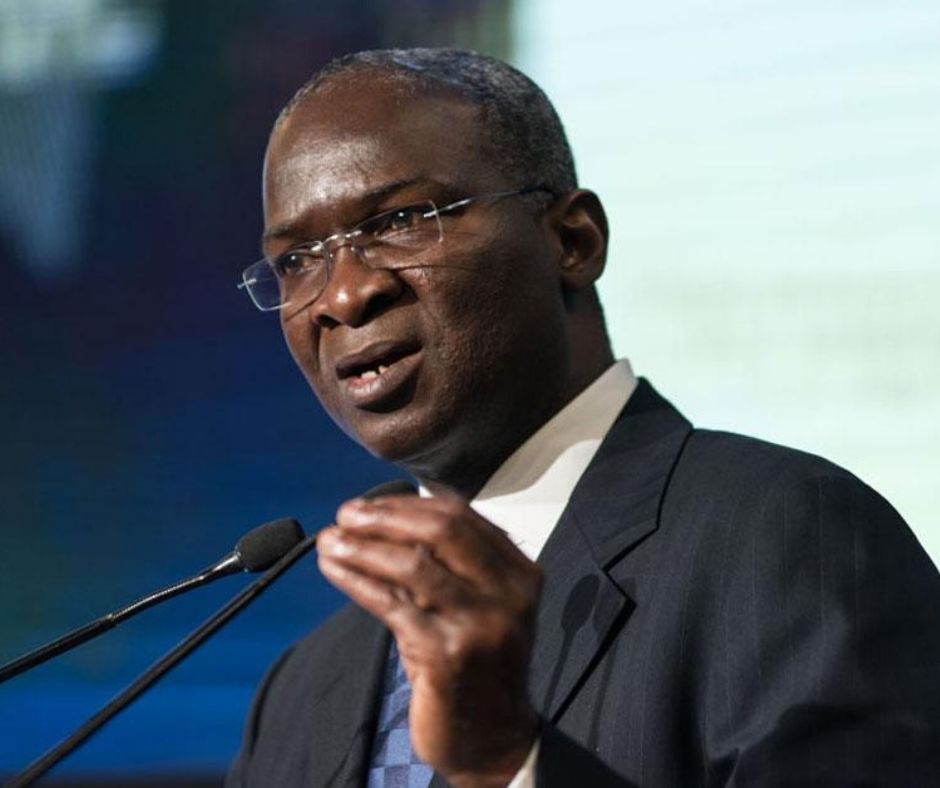FG has completed 64 internal tertiary institution roads – Fashola
The Minister of Works and Housing, Babatunde Fashola, has said the federal government has intervened in 83 internal road projects in various federal tertiary institutions in the country. He said this at the handover of a 2.75 kilometre (asphalt overlay) internal road constructed by the federal government at the University of Ilorin on Wednesday. The […]

Babatunde Fashola
The Minister of Works and Housing, Babatunde Fashola, has said the federal government has intervened in 83 internal road projects in various federal tertiary institutions in the country.
He said this at the handover of a 2.75 kilometre (asphalt overlay) internal road constructed by the federal government at the University of Ilorin on Wednesday.
The road links the University of Ilorin’s main campus to the institution’s teaching hospital to ease and shorten vehicular movement along the axis.
According to him, the ministry had intervened in 64 internal road projects in various federal tertiary institutions and handed over a total of 46 as at March 2022.
Ekiti promises adequate security during festive season
Expect Christian-Christian ticket in future — Tinubu’s wife
“We now have another 18 ready to be handed over, while we are currently attending to 19 roads in similar institutions across the country making a total of 83,” he said.
Represented by the Federal Controller of Works in Kwara State, Engr. Lasisi Rafiu, the minister described the project as an investment in education.
Fashola, whose message was also delivered in Gombe State by the Federal Controller of Works, Engr. Salihu JIbrin, during the handover of one of the projects at the Federal College of Education (Technical), Gombe, said the road project was part of efforts to bridge the infrastructure gaps in the country.
He added that the federal government was intervening in road projects across the tertiary institutions because of the importance of infrastructure to the quality of education.
According to him, the quality of education will be impacted by the quality of infrastructure and the learning environment.
From Mumini AbdulKareem (Ilorin) & Haruna Gimba Yaya (Gombe)
